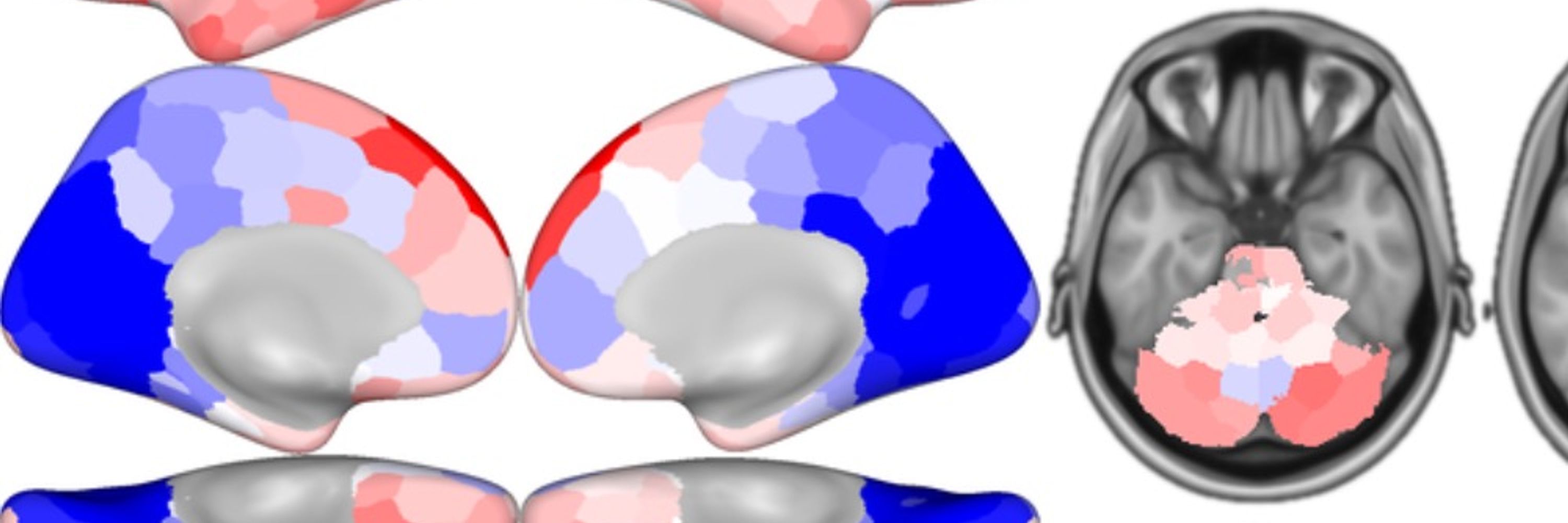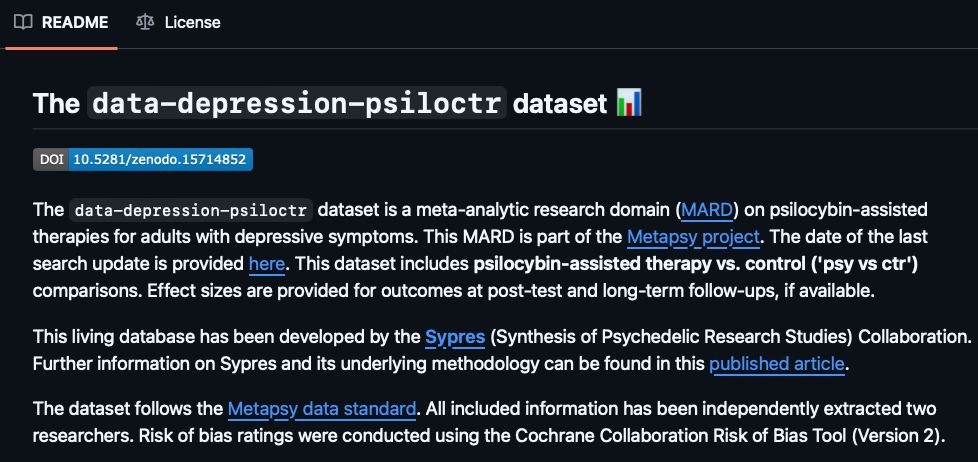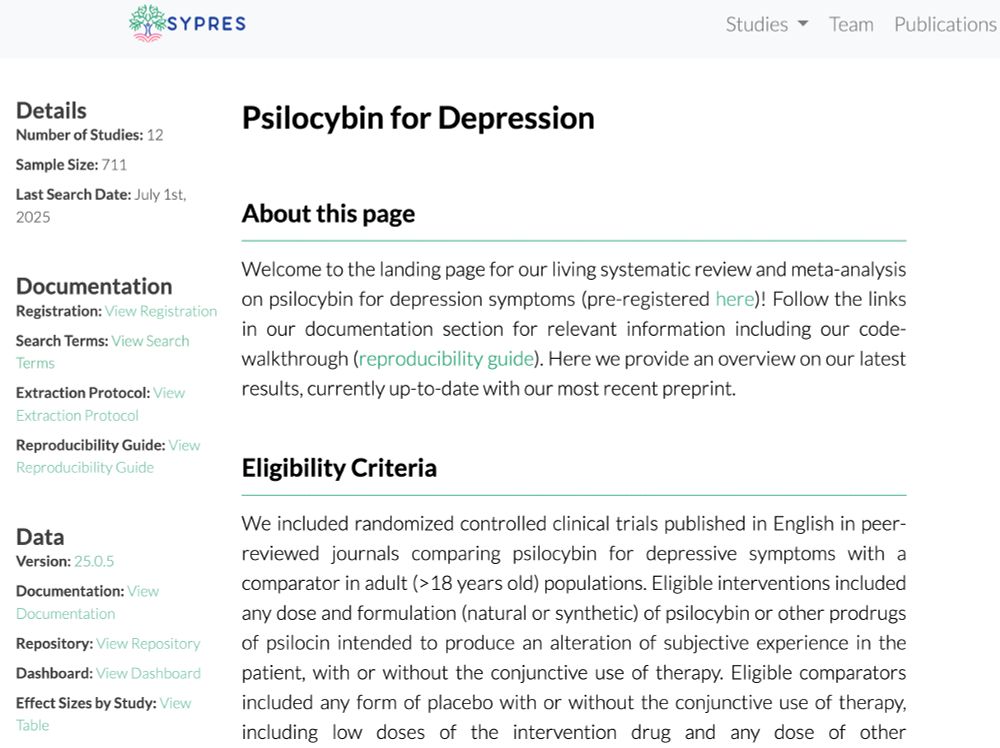
Parker Singleton
@parkersingleton.bsky.social
Senior Scientist at Penn Lifespan Informatics and Neuroimaging Center (PennLINC) studying psychedelics and the brain.
sypres.io
sypres.io
I thought about busting the PS out of the attic recently just for Spyro and Crash Bandicoot
October 20, 2025 at 7:44 PM
I thought about busting the PS out of the attic recently just for Spyro and Crash Bandicoot
my linkedin feed has become filled with psychedelic memes and I'm connected with an OG acid kingpin.
August 28, 2025 at 1:18 PM
my linkedin feed has become filled with psychedelic memes and I'm connected with an OG acid kingpin.
Thanks Parker!
August 18, 2025 at 6:42 PM
Thanks Parker!
Analiese Lahey, @pimcuijpers.bsky.social, @mathiasharrer.bsky.social, @mntj21.bsky.social, Sandeep Nayak, Eric Strain, @vandyatvandy.bsky.social, Bob Dworkin, @jcobbscott.bsky.social. @ted-satterthwaite.bsky.social, @pennlinc.bsky.social
August 18, 2025 at 1:17 PM
Analiese Lahey, @pimcuijpers.bsky.social, @mathiasharrer.bsky.social, @mntj21.bsky.social, Sandeep Nayak, Eric Strain, @vandyatvandy.bsky.social, Bob Dworkin, @jcobbscott.bsky.social. @ted-satterthwaite.bsky.social, @pennlinc.bsky.social
All of this and more can be easily accessed through sypres.io
Team effort with co-first author (!!!) @bsevchik.bsky.social and the rest of the SYPRES and Metapsy team who made this happen!
Team effort with co-first author (!!!) @bsevchik.bsky.social and the rest of the SYPRES and Metapsy team who made this happen!
SYPRES
The official website for the sypres initiative.
sypres.io
August 18, 2025 at 1:17 PM
All of this and more can be easily accessed through sypres.io
Team effort with co-first author (!!!) @bsevchik.bsky.social and the rest of the SYPRES and Metapsy team who made this happen!
Team effort with co-first author (!!!) @bsevchik.bsky.social and the rest of the SYPRES and Metapsy team who made this happen!
In partnership with metapsy.org we built an interactive dashboard for exploring the data. Users can:
• Filter studies by characteristics
• Test different analysis parameters
• Test moderators
• Download figures and reports
Dashboard: metapsy.org/sypres/psilo...
• Filter studies by characteristics
• Test different analysis parameters
• Test moderators
• Download figures and reports
Dashboard: metapsy.org/sypres/psilo...

August 18, 2025 at 1:17 PM
In partnership with metapsy.org we built an interactive dashboard for exploring the data. Users can:
• Filter studies by characteristics
• Test different analysis parameters
• Test moderators
• Download figures and reports
Dashboard: metapsy.org/sypres/psilo...
• Filter studies by characteristics
• Test different analysis parameters
• Test moderators
• Download figures and reports
Dashboard: metapsy.org/sypres/psilo...
Our database includes 200+ effect sizes, encompassing all depression outcomes and timepoints reported by arm in each of the 12 RCTs included. This database can be downloaded from our website (sypres.io) or imported directly into R environments using the metapsyData package from metapsy.org

August 18, 2025 at 1:17 PM
Our database includes 200+ effect sizes, encompassing all depression outcomes and timepoints reported by arm in each of the 12 RCTs included. This database can be downloaded from our website (sypres.io) or imported directly into R environments using the metapsyData package from metapsy.org
Here, psilocybin showed a greater reduction in depression scores compared to control conditions, with a pooled Hedges’ g = -0.91 (k = 9; p = 0.0013, I2 = 58.1%, n = 501). But important caveats—small studies, blinding challenges, risk of bias, and design heterogeneity, which we discuss in the paper.

August 18, 2025 at 1:17 PM
Here, psilocybin showed a greater reduction in depression scores compared to control conditions, with a pooled Hedges’ g = -0.91 (k = 9; p = 0.0013, I2 = 58.1%, n = 501). But important caveats—small studies, blinding challenges, risk of bias, and design heterogeneity, which we discuss in the paper.
sypres.io is our new initiative featuring:
📊 Regularly updated meta-analyses
🔍 User-guided sensitivity and moderation analysis
🕵️ Transparent study quality & risk-of-bias assessments
⚙️ Open code & data
📊 Regularly updated meta-analyses
🔍 User-guided sensitivity and moderation analysis
🕵️ Transparent study quality & risk-of-bias assessments
⚙️ Open code & data

August 18, 2025 at 1:17 PM
sypres.io is our new initiative featuring:
📊 Regularly updated meta-analyses
🔍 User-guided sensitivity and moderation analysis
🕵️ Transparent study quality & risk-of-bias assessments
⚙️ Open code & data
📊 Regularly updated meta-analyses
🔍 User-guided sensitivity and moderation analysis
🕵️ Transparent study quality & risk-of-bias assessments
⚙️ Open code & data
Psychedelic science has experienced the benefits and drawbacks of hype. However, new results are rarely contextualized in the historical body of evidence in an accessible manner. We need more robust, living, evidence synthesis that is visible and accessible to all stakeholders.

August 18, 2025 at 1:17 PM
Psychedelic science has experienced the benefits and drawbacks of hype. However, new results are rarely contextualized in the historical body of evidence in an accessible manner. We need more robust, living, evidence synthesis that is visible and accessible to all stakeholders.

